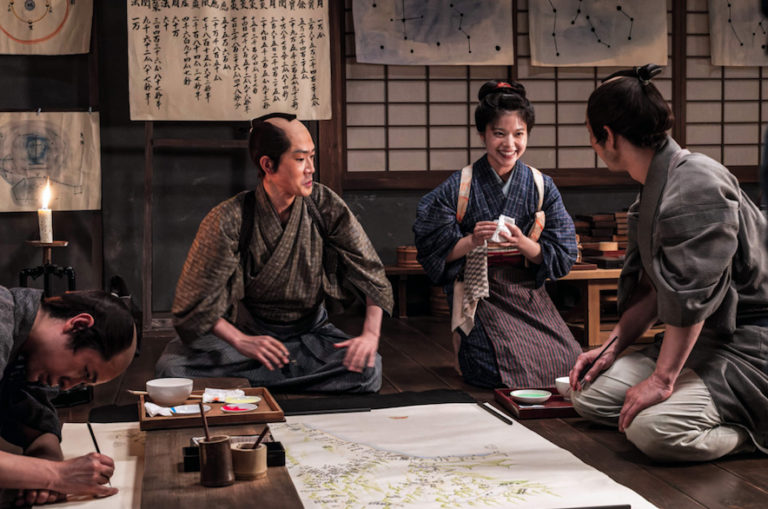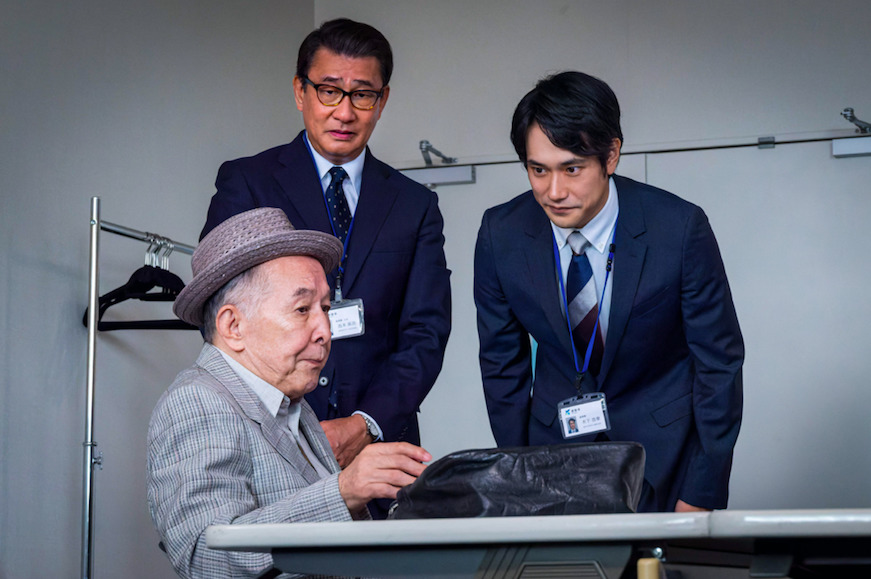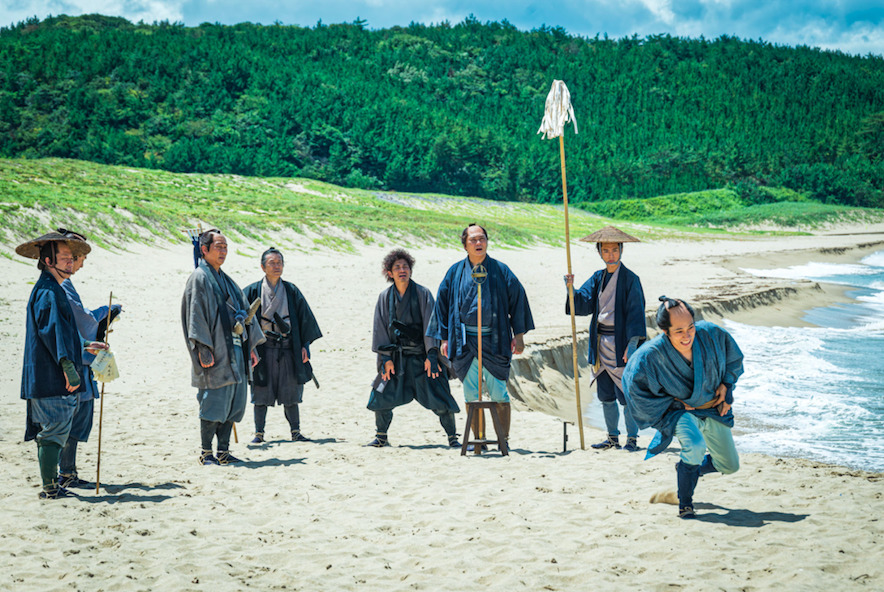
Japan Society’s programmes are always in step with the times. A survey of the growing prominence and visibility of women in film, has given birth to the latest ACA Cinema Project series The Female Gaze: Women Filmmakers from JAPAN CUTS and Beyond focusing on the essential roles that women play from behind the camera in Japanese cinema. The line-up includes a film penned by female screenwriter Yoshiko Morishita, who adapted for the screen Shinosuke Tatekawa’s original rakugo comic performance. Her script has become the film directed by Kenji Nakanishi, Dreaming of the Meridian Arc.
This charming and enlightening film is rich in historical detail. It all begins in the present day when Ikemoto (Kiichi Nakai), an employee of Chiba’s Katori City Hall, passionately advocates for the making of a historical television drama about Inō Tadataka. He was credited with the creation of Japan’s first map in 1821, at a time when there were no satellites or drones.

Ikemoto sets out to hire the most illustrious screenwriter in the country — Mr. Kato — to write the script about Tadataka’s life and is so enamoured with this historical figure from his hometown that he uncovers many anecdotes about his life. Ikemoto discovers that Inō was born in Kozeki Village and that Sanjiro was his childhood name. Tadataka was a merchant, who started studying astronomy when he was 50 years old, as a pupil of Takahashi Yoshitoki. He was not planning to make a map, he just wanted to study the size of the Earth so he set to determine the true length of the meridian arc, by measuring one degree of the planet’s latitude to calculate the whole. At that time people in Japan weren’t allowed to travel without permission, so when he found out that the Tokugawa Shogunate wanted an accurate map of Ezo (the lands to the North of the Japanese island of Honshu) he offered to map Hokkaido. Thus his plight began to create an atlas of the entire nation.
However Dreaming of the Meridian Arc is not a biopic about Inō Tadataka, but rather it unveils a historical hoax. When Mr. Kato, Ikemata and his colleague Kinoshita (Kenichi Matsuyama), start their research on Tadataka’s operation a surprising revelation emerges: the cartographer died in 1818, three years before the map was presented to the Shogun and the world. His pupils — lead by Takahashi Kageyasu (Kiichi Nakai again) — in order to bring his dream to accomplishment kept their master’s death concealed. He was buried as an unidentified person in Ueno’s Genkuji Temple next to Takahashi’s father, so that the Shogunate would continue to fund their survey trips allowing them to carry out a secret operation to finish the map to honour their sensei.
There are frolicsome gimmicks that the team conceives, such as having Inō’s body-double travel in a palanquin to elude the Shogunate’s questions. Thus, Dreaming of the Meridian Arc offers a jocose and uplifting account of the exploits that led to the completion of Inō’s revolutionary map.

None of the people who worked clandestinely and relentlessly on this mission got credit for their work, since the map is attributed to Tadataka.
Dreaming of the Meridian Arc celebrates these unsung heroes, through a playfully imaginative chronicle that goes back to the Bunsei Era and imagines how the Inō Tadaka team deceived the world for 1000 days to complete the first topographical depiction of the Rising Sun: 214 pages covering all of Japan.
The film is beautifully shot: the seashore scenes are beguiling, as we experience firsthand the journey required to measure the entire Nipponic land. Yoshiko Morishita’s screenplay is witty, moving and entertaining and brilliantly brought to life by the entire cast.
Dreaming of the Meridian Arc, besides being an homage to the people whose names have been lost in history, tributes the perseverance of the pursuit of a set goal. Just as the Inō team completed Japan’s map, Ikemoto does not give up on his intention of making a drama series about his hero. The entire motion picture epitomises the concept brought forth by a character who describes teamwork as a combination of “Chu” (loyalty) and “Kei” (respect).
Final Grade: A

